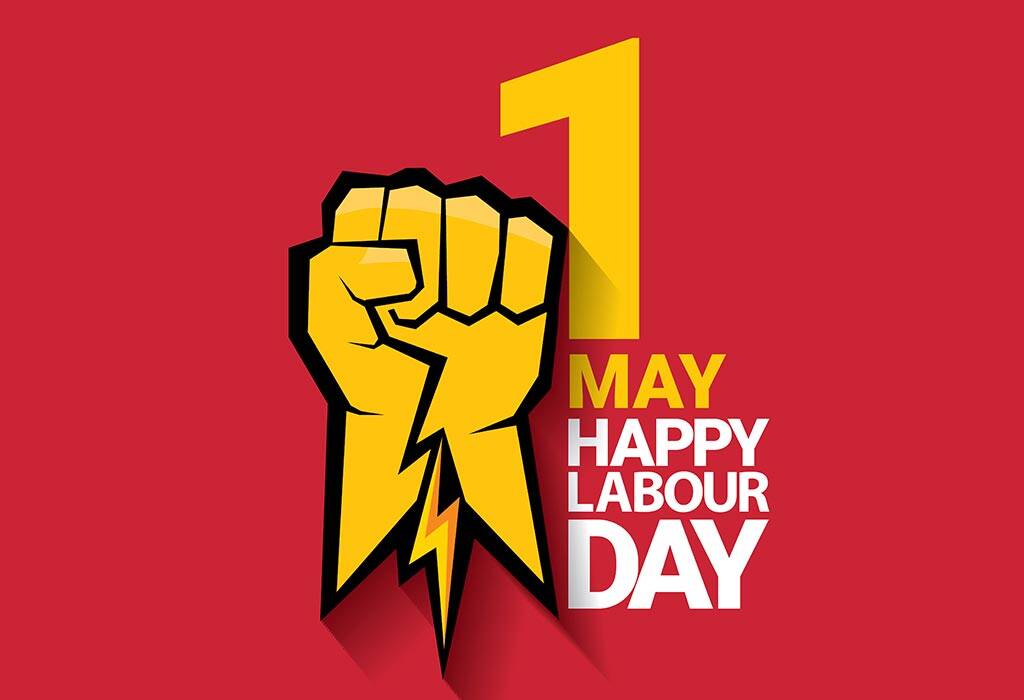
May Day, also known as International Workers' Day, is celebrated on the first day of May every year. It is a day dedicated to the labor movement and the struggle of workers for their rights and better working conditions. May Day is observed as a public holiday in many countries around the world, including the United States, Canada, Russia, and much of Europe.
The history of May Day dates back to the late 19th century, when workers in the United States began to organize themselves into labor unions to fight for better pay, shorter working hours, and safer working conditions. In May 1886, workers in Chicago went on strike demanding an eight-hour workday. On May 3, 1886, the police killed two strikers during a confrontation, which led to a mass protest the following day.
On May 4, 1886, a bomb exploded during a labor demonstration in Chicago's Haymarket Square, killing several people, including police officers. The police arrested several labor leaders, including Albert Parsons and August Spies, accusing them of being responsible for the bombing. They were tried and convicted, despite a lack of evidence, and four of them were hanged.
The Haymarket affair, as it came to be known, became a rallying cry for the labor movement around the world. In 1889, the International Socialist Conference in Paris declared May 1 as International Workers' Day, in memory of the Haymarket martyrs and in recognition of the struggle of workers for their rights.
Since then, May Day has been observed as a day of protest, solidarity, and celebration by workers around the world. It is a day when workers come together to demand better wages, better working conditions, and an end to exploitation. May Day is also a day to celebrate the achievements of the labor movement, including the establishment of the eight-hour workday, the minimum wage, and the right to organize and bargain collectively.
In many countries, May Day is celebrated with parades, rallies, and speeches by labor leaders and politicians. In some countries, it is also a day when workers go on strike to demand better conditions or to protest against government policies that they see as harmful to workers' rights.
In recent years, May Day has taken on renewed importance, as workers around the world face new challenges in the form of globalization, automation, and the gig economy. The COVID-19 pandemic has also highlighted the importance of workers' rights, as many essential workers have been forced to work in unsafe conditions without adequate protection or compensation.
As we celebrate May Day this year, let us remember the sacrifices of the Haymarket martyrs and the struggles of workers throughout history. Let us also renew our commitment to the fight for workers' rights, and to the goal of creating a world where every worker is treated with dignity and respect.
As we reflect on the history of May Day and the ongoing struggles of workers around the world, it is clear that the fight for workers' rights is far from over. In many parts of the world, workers still face exploitation, unsafe working conditions, and low wages, often with little or no legal protection.
The COVID-19 pandemic has highlighted the inequalities and injustices that many workers face. Frontline workers, including healthcare workers, grocery store employees, and delivery drivers, have put their health and safety on the line to keep society running, often with inadequate protection and compensation.
The pandemic has also exposed the precariousness of work in the gig economy, where workers have little job security, few benefits, and no legal protection. In many countries, gig workers have been excluded from the government's pandemic support programs, leaving them in a precarious financial situation.
In response to these challenges, workers and labor unions have been organizing to demand better working conditions, including higher wages, safer workplaces, and greater protections for workers' rights. In some countries, workers have also been pushing for a shorter workweek, with the aim of achieving a better work-life balance and reducing the risk of burnout.
As we look to the future, it is clear that the fight for workers' rights will continue to be a central issue in society. The changing nature of work, including the rise of automation and the gig economy, will pose new challenges for workers and require new strategies for organizing and collective action.
In this context, May Day remains an important symbol of the ongoing struggle for workers' rights and the need for solidarity among workers around the world. By coming together to demand better conditions and greater protections for workers' rights, we can build a more just and equitable society for all.





Comments
There are no comments for this story
Be the first to respond and start the conversation.